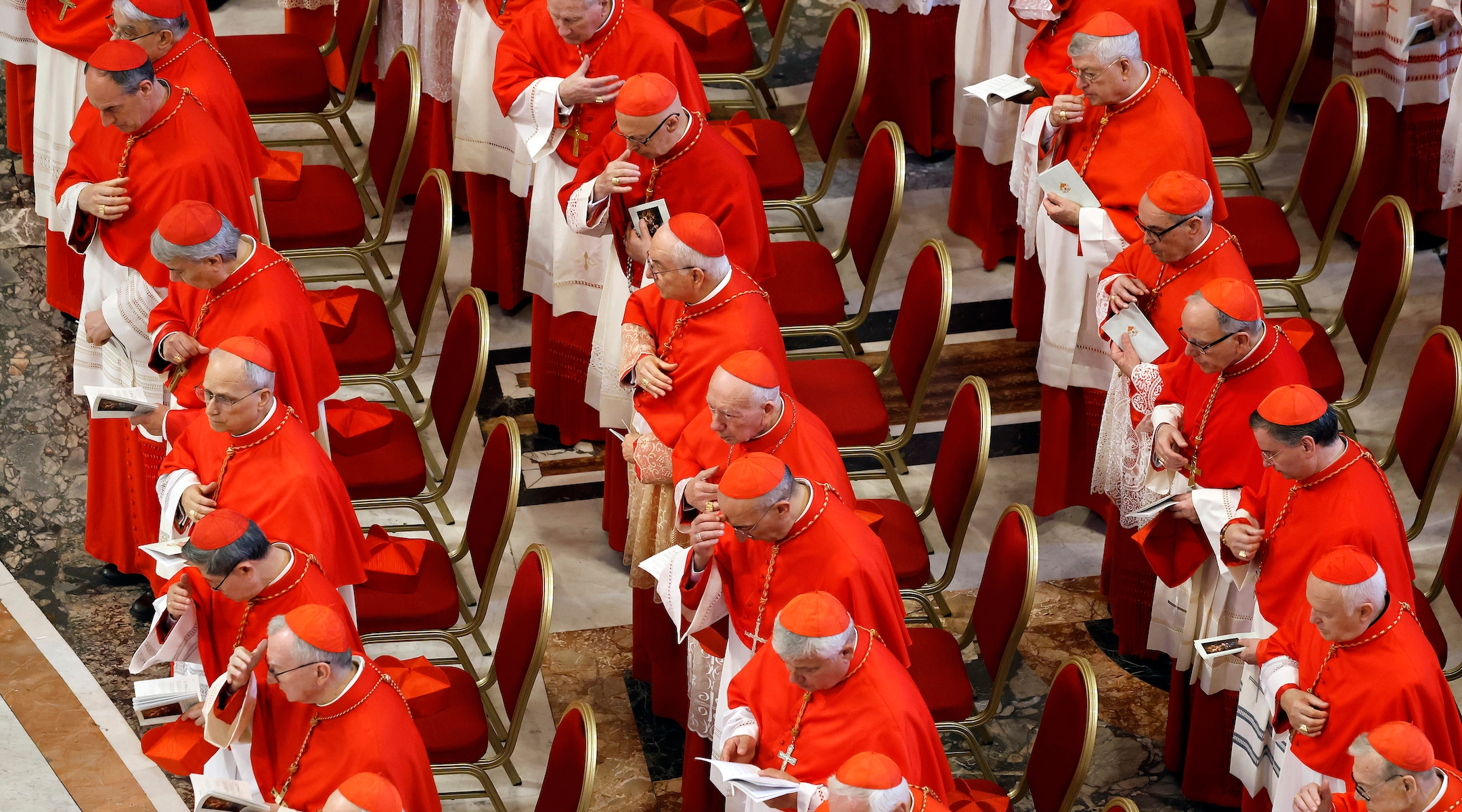Will the next pope speak Hebrew?
As of now, it’s possible. In the wake of Pope Francis’ death on Monday, Catholic cardinals from across the world will gather for a conclave in the Vatican’s Sistine Chapel to elect the next pope.
And one name that’s been floated, among the dozen or so leading candidates, is Pierbattista Pizzaballa, the Latin patriarch of Jerusalem.
Pizzaballa, a cardinal who is the most senior Catholic official in the Holy Land, has lived in Israel for decades and speaks fluent Hebrew. His elevation would mark a milestone in Jewish-Catholic relations, coming just over 30 years after the Vatican recognized the Jewish state.
But Pizzaballa isn’t the only cardinal with Jewish history. Francis, who was close with rabbis in his native Argentina, presided over an era of growing ties with Jews, and pushed back against conservative forces in the church that harkened to an era when Catholic-Jewish relations were frostier. At the same time, he has earned the ire of some Israeli and Jewish leaders for his harsh criticism of Israel’s military conduct in Gaza.
Francis chose the vast majority of the cardinals who will vote for his successor in the highly secretive conclave. And several of the contenders also have strong ties to Jews. Some have also criticized Israel’s actions.
Here’s a quick look at some leading candidates to succeed Francis, known as the papabili, and their relationship with Jewish communities and Israel.
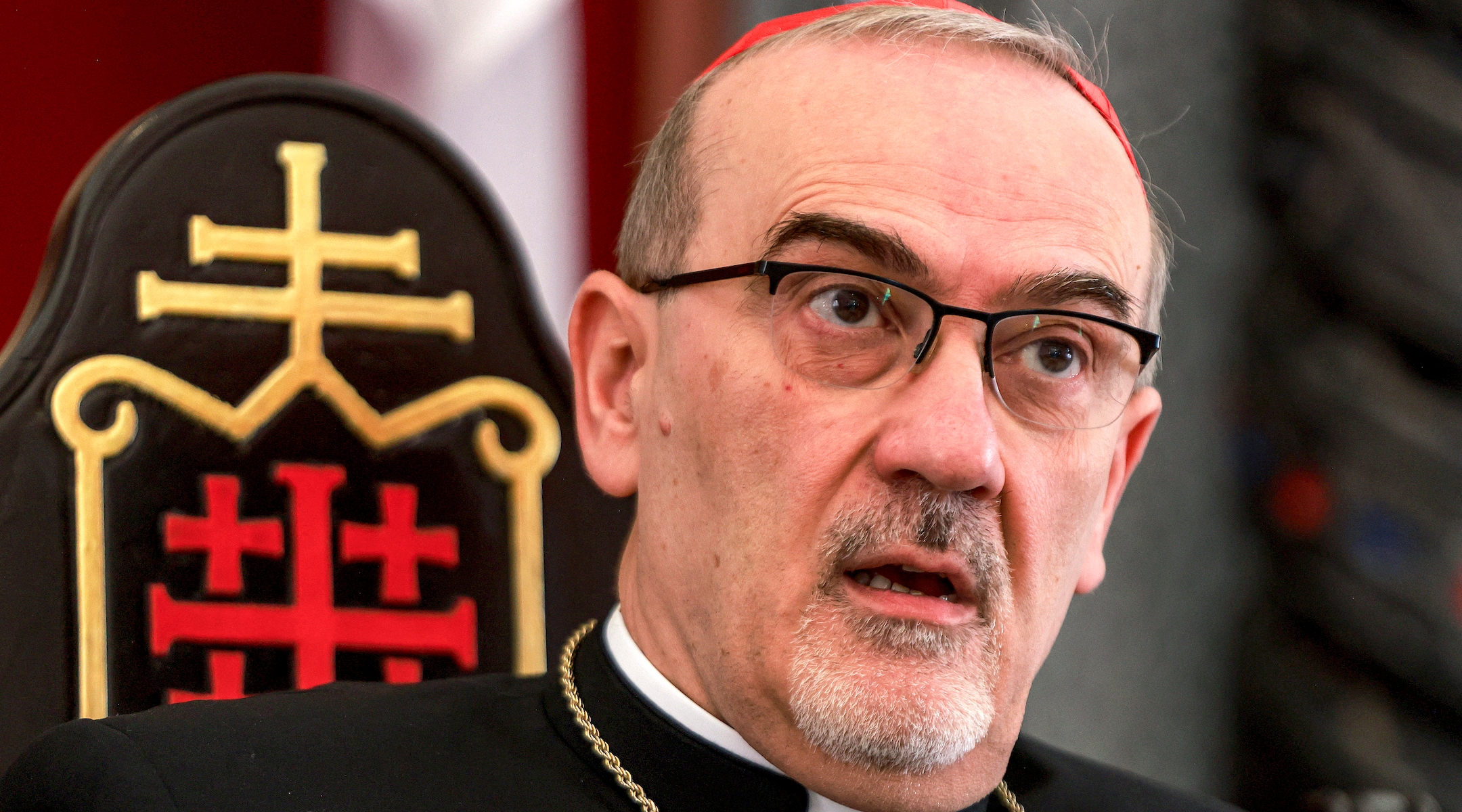
Cardinal Pierbattista Pizzaballa, Latin patriarch of Jerusalem, gives an interview at the patriarchate headquarters in Jerusalem on April 22, 2025. (Menahem Kahana/AFP)
Pierbattista Pizzaballa
Pizzaballa, 60, has the closest connection to Jews and Israel of any of the leading candidates to succeed Francis. From northern Italy, Pizzaballa has lived and worked in Israel since 1990. He studied the Bible at Hebrew University — reportedly the only Christian to do so at the time — and became fluent in Hebrew.
He has been the Latin patriarch of Jerusalem since 2016. Speaking to the Israeli publication Ynet shortly before becoming cardinal, he said of Israel, “99% of society here accepts me as a Christian.”
Francis made him a cardinal in September 2023 — just days before Hamas’ Oct. 7 attack on Israel. Since then, he has repeatedly condemned the Hamas attack and called for an end to the violence. Days after the war, he offered to take the place of the dozens of child hostages held by Hamas. On Oct. 11, 2023, he issued his first of many calls for a ceasefire. He has also visited Gaza during the war.
On Tuesday, following Francis’ death, he said, “Gaza represents, a little bit, all what was the heart of his pontificate” and related that for a time, the pope would call Christians in Gaza nightly. (There is one Catholic church in Gaza, which has around 1,000 Catholics.)
He is considered an ally of Francis, though when it comes to whether he wants to be Francis’ successor, he told Ynet, “As far from it as possible. Definitely not.”
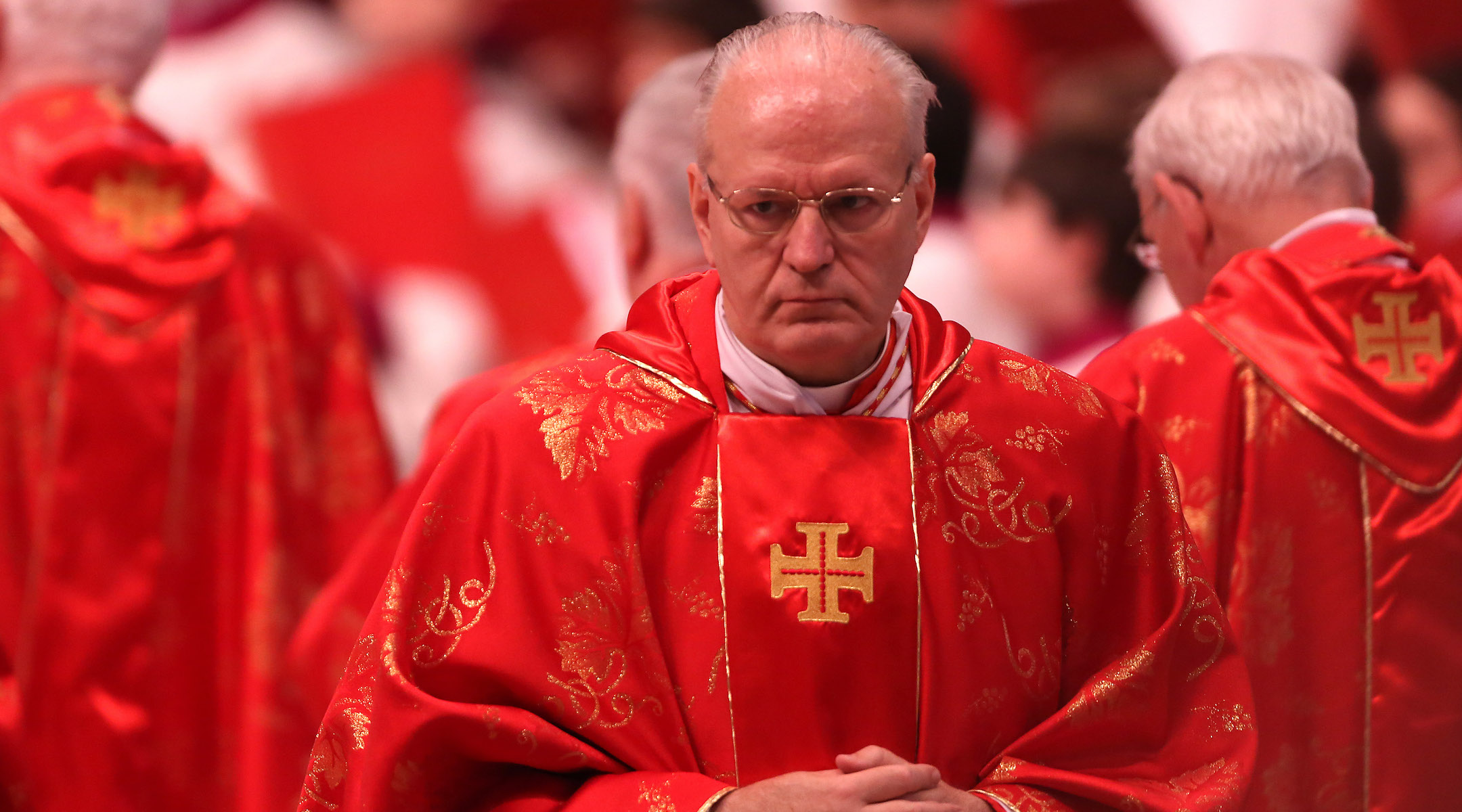
Hungarian Cardinal Peter Erdo attends the Pro Eligendo Romano Pontifice Mass at St Peter’s Basilica, before they enter the conclave to decide who the next pope will be,on March 12, 2013 in Vatican City. (Franco Origlia/Getty Images)
Peter Erdo
Erdo, 72, has been the archbishop of Esztergom-Budapest in Hungary for more than 20 years, and during that time, he has earned the trust of local Jewish leaders. Erdo is seen as a conservative alternative to Francis’ liberal wing, and has cautioned, for example, against European countries admitting too many migrants.
He has also taken flak from his country’s own far right for his close relationship with Hungarian Jewry, including for eating at a Jewish restaurant. He has spoken at Holocaust memorials, including one gathering that examined the church’s controversial actions during the Nazi genocide. In 2018, following vocal protest from Jewish groups, he urged the cancellation of a mass in memory of Hungarian Nazi ally Miklos Horthy that had been scheduled for International Holocaust Remembrance Day.
In 2006, he was the first-ever Catholic recipient of the “For the Jews in Hungary” award from the Federation of Jewish Communities in Hungary, which cited his work “strengthening dialogue” between the two religions and “preserving the memory of the Jews killed during the Holocaust and those who saved them.”
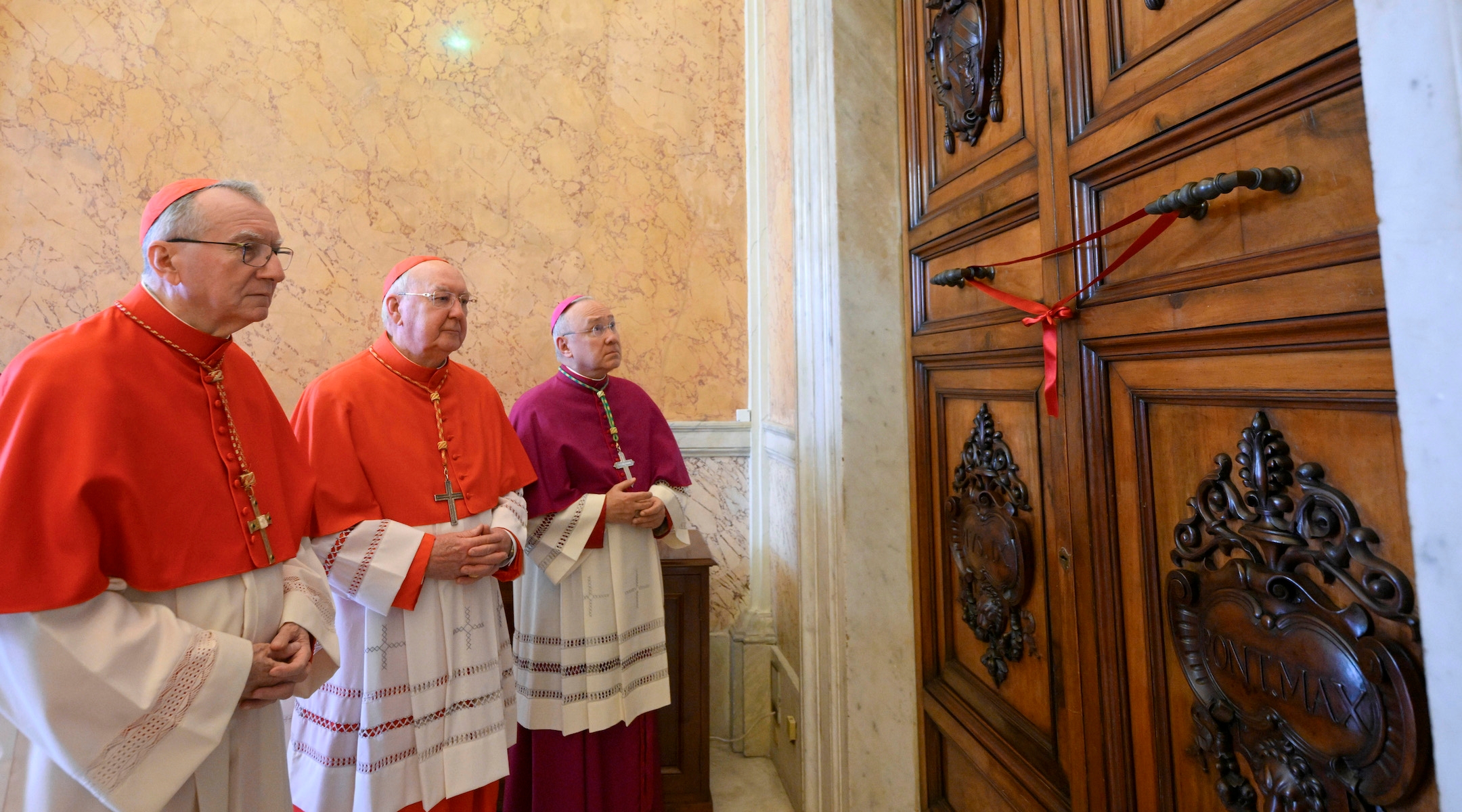
Cardinal Kevin Farrell (center), camerlengo of the Apostolic Chamber, and Vatican Secretary of State Cardinal Pietro Parolin (left) put seals on the Papal apartment of the Apostolic Palace on April 21, 2025 in Vatican City (Vatican Pool/Getty Images)
Pietro Parolin
As the Vatican’s secretary of state, Parolin, 70, served as a deputy to Francis as well as a close ally. He has spoken out against antisemitism and has met with Jewish delegations repeatedly, both before and after Oct. 7, 2023, and has had warm relations with them.
Last month, he had a long meeting with a delegation of Jewish leaders including the American celebrity Rabbi Shmuley Boteach. Boteach wrote that he tried to “persuade the Church to formally recognize Israel as the biblical birthright of the Jewish people.”
Parolin has condemned the Oct. 7 attack. But he sparked criticism from Israeli officials in February 2024, when he said about the war in Gaza, “I believe we are all outraged by what is happening, by this carnage,” and said Israel’s response to Hamas’ attack was disproportionate.
He was a strong supporter of Francis’ effort to suppress opposition to the Second Vatican Council, in which the church rejected antisemitism and the charge that the Jewish people killed Jesus. He reportedly played a leading part in composing Francis’ declaration restricting the Latin Mass, a symbol of pre-Vatican II Catholicism.
Matteo Zuppi
Zuppi, 69, is the archbishop of Bologna, another close Francis ally and the Vatican’s envoy for Ukraine. He too condemned the Oct. 7 attack and called Hamas “the worst enemy of the Palestinian people” in late October 2023, when he also said, “We need a solution that guarantees the rights of the two sides,” Israelis and Palestinians.
After Francis made a statement that some interpreted as an accusation that Israel was committing terrorism, Zuppi clarified that the pope did not mean to equate Israel and Hamas, saying, “The pope is careful and, look, this does not mean putting everyone on the same level.” He said the pope understands Israel’s motivations.
He also spoke out against antisemitism following Oct. 7, calling combatting the hatred “an educational, religious and civic commitment of the Italian Church.” Shortly after Oct. 7, he participated in a ceremony commemorating the 80th anniversary of the expulsion of 1,200 Jews from Rome to Auschwitz.
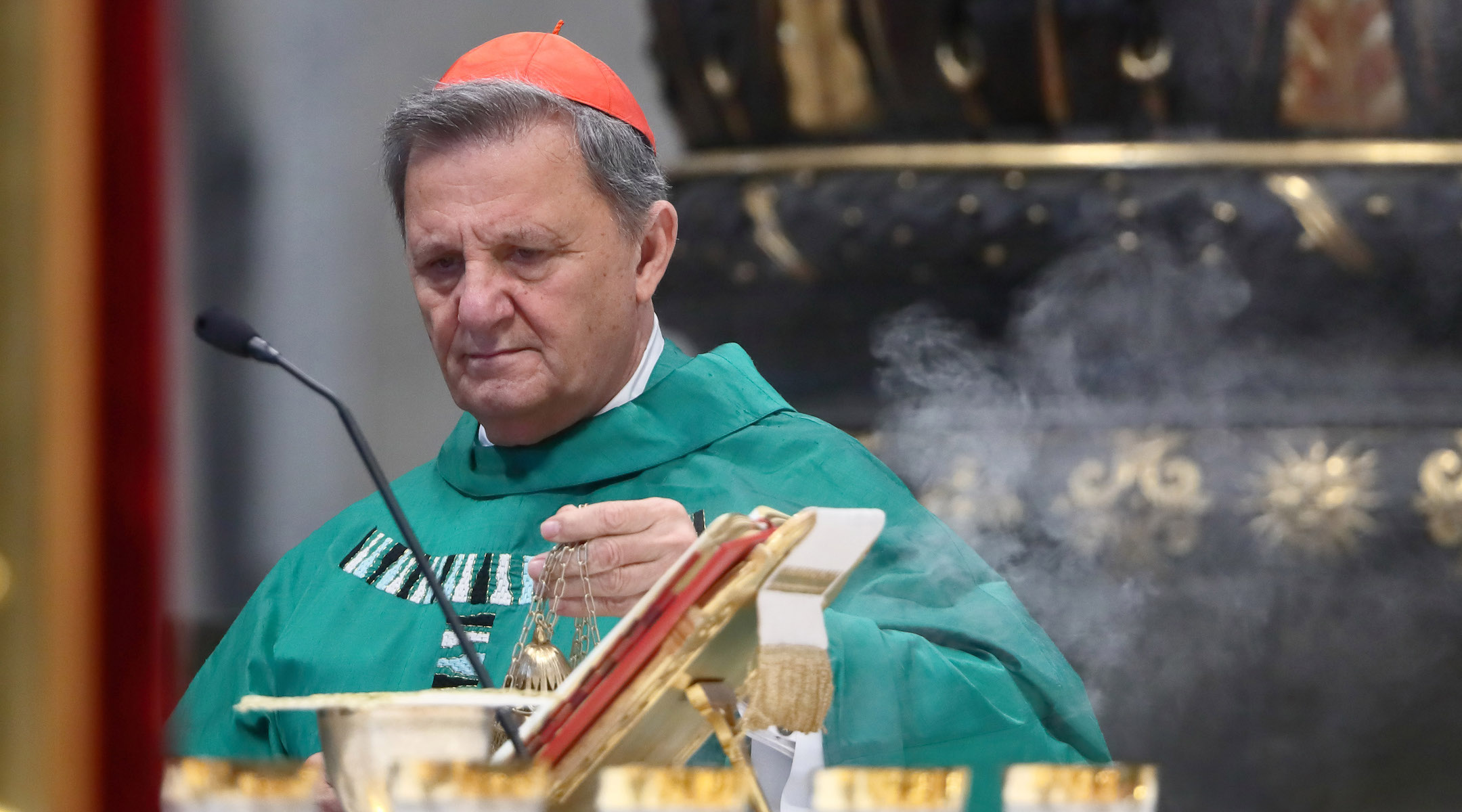
Cardinal Mario Grech during the Mass presided over by Pope Francis in St. Peter’s Basilica on the occasion of the conclusion of the Ordinary General Assembly of the Synod of Bishops. (Grzegorz Galazka/Mondadori Portfolio via Getty Images)
Mario Grech
Grech, 68, from Malta, is a senior Vatican official who is seen as part of the progressive camp and was another close ally of Francis. However, prior to Francis becoming pope, Grech was seen as conservative and was promoted to bishop by Francis’ traditionalist predecessor, Benedict XVI. Grech appears to have changed his views on LGBTQ people in the church as well as other issues, according to a dossier written by a group of Catholic journalists.
Grech traveled to Israel in 2018, where he spoke of the importance of pairing Catholic culture with belief.
When Benedict worked to promote the Latin Mass during his pontificate, Grech reportedly balked at allowing it in his community. But on multiple occasions, he has cited passages in the New Testament that depict Jews negatively in order to make his points.
According to the publication Catholic Culture, speaking about the “trap of puritanism,” he said in 2017, “The Jews preferred not to be contaminated by the impurities of others… To keep the Law, the Jews cast out those who were unclean.”
And in 2019, writing about having “clear eyes,” he referenced a famous story in the New Testament in which Jews condemned a woman who had committed adultery whom Jesus then treated with kindness.
“Even the way they saw the law was a misty one. Their interpretation of the law was too narrow, formal and rigid. In their view the law was there to choke, subjugate and cause hurt. They followed the letter of the law and they did not care about the person concerned,” he wrote in an essay in the Times of Malta. “For these Jews the law was dearer than justice; they loved the law but they forgot about love.”
Other contenders
Several other cardinals whose names have come up ahead of the conclave are:
- Luis Antonio Tagle, 67, from the Philippines, who visited a synagogue serving the country’s small Jewish community in 2019.
- Peter Turkson, 76, of Ghana, who co-chaired a meeting in 2018 between the Chief Rabbinate of Israel and the Holy See’s Commission for Religious Relations with the Jews, which reaffirmed the church’s rejection of antisemitism.
- Jean Marc Aveline, 66, of France, who wrote a book emphasizing the link between Judaism and Christianity.
- Joseph Tobin, 72, of Newark, New Jersey, who in 2019 called for a “Nostra Aetate moment” in the church’s combatting of sexual abuse, a reference to the 1965 document that rejected antisemitism. He has also promoted Jewish-Christian interfaith work.
JTA has documented Jewish history in real-time for over a century. Keep our journalism strong by joining us in supporting independent, award-winning reporting.
